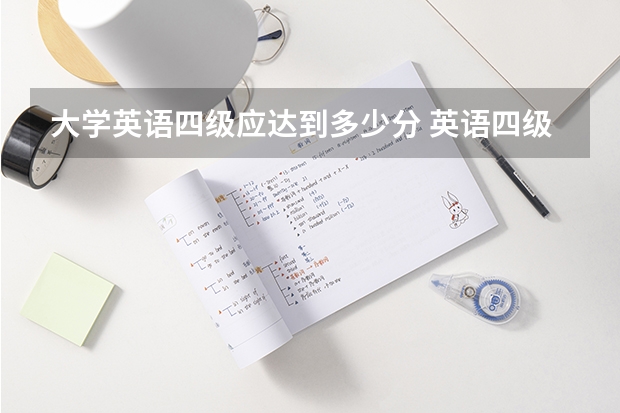大学英语四级考试阅读理解 四级考试英语阅读理解精选题附答案?
2023-08-31 01:32:45 | 蜕变培训网

四级考试英语阅读理解精选题附答案?
阅读题在英语四级考试中一直占有相当大的比重,因而加强英语阅读的训练尤为重要。下面我为大家带来四级考试英语阅读理解精选题,供考生阅读练习。四级考试英语阅读理解精选题***一***
munications technologies are far from equal when it es to conveying the truth. The first study to pare honesty across a range of munication media has fund that people are twice as likely to tell lies in phone conversations as they are in emails. The fact that emails are automatically recorded—and can e back to haunt ***困扰*** you—appears to be the key to the finding.
Jeff Hancock of Cornell University in Ithaca, New York, asked 30 students to keep a munications diary for a week. In it they noted the number of conversations or email exchanges they had lasting more than 10 minutes, and confessed to how many lies they told. Hancock then worked out the number of lies per conversation for each medium. He found that lies made up 14 per cent of emails, 21 per cent of instant messages, 27 per cent of face-to-face interactions and an astonishing 37 per cent of phone calls.
His results to be presented at the conference on human-puter interaction in Vienna, Austria, in April, have surprised psychologists. Some expected emailers to be the biggest liars, reasoning that because deception makes people unfortable, the detachment ***非直接接触*** of emailing would make it easier to lie. Others expected people to lie more in face-to-face exchanges because we are most practised at that form of munication.
But Hancock says it is also crucial whether a conversation is being recorded and could be reread, and whether it occurs in real time. People appear to be afraid to lie when they know the munication could later be used to hold them to account, he says. This is why fewer lies appear in email than on the phone.
People are also more likely to lie in real time—in a instant message or phone call, say—than if they have time to think of a response, says Hancock. He found many lies are spontaneous ***脱口而出的*** responses to an unexpected demand, such as: “Do you like my dress?”
Hancock hopes his research will help panies work our the best ways for their employees to municate. For instance, the phone might be the best medium foe sales where employees are encouraged to stretch the truth. But, given his result, work asses *** ent where honesty is a priority, might be best done using email.
57. Hancock’s study focuses on ________.
A*** the consequences of lying in various munications media
B*** the success of munications technologies in conveying ideas
C*** people are less likely to lie in instant messages
D*** people’s honesty levels across a range of munications media
58. Hancock’s research finding surprised those who believed that ________.
A*** people are less likely to lie in instant messages
B*** people are unlikely to lie in face-to-face interactions
C*** people are most likely to lie in email munication
D*** people are twice as likely to lie in phone conversations
59. According to the passage, why are people more likely to tell the truth through certain media of munication?
A*** They are afraid of leaving behind traces of their lies.
B*** They believe that honesty is the best policy.
C*** They tend to be relaxed when using those media.
D*** They are most practised at those forms of munication.
60. According to Hancock the telephone is a preferable medium for promoting sales because ________.
A*** sale *** en can talk directly to their customers
B*** sale *** en may feel less restrained to exaggerate
C*** sale *** en can impress customers as being trustworthy
D*** sale *** en may pass on instant messages effectively
61. It can be inferred from the passage that ________.
A*** honesty should be encouraged in interpersonal munications
B*** more employers will use emails to municate with their employees
C*** suitable media should be chosen for different munication purposes
D*** email is now the dominant medium of munication within a pany
四级考试英语阅读理解精选题答案
57. D 58. A 59. A 60.B 61. C
四级考试英语阅读理解精选题***二***
As we have seen, the focus of medical care in our society has been shifting from curing disease to preventing disease—especially in terms of changing our many unhealthy behaviors, such as poor eating habits, *** oking, and failure to exercise. The line of thought involved in this shift can be pursued further. Imagine a person who is about the right weight, but does not eat very nutritious ***有营养的*** foods, who feels OK but exercises only occasionally, who goes to work every day, but is not an outstanding worker, who drinks a few beers at home most nights but does not drive while drunk, and who has no chest pains or abnormal blood counts, but sleeps a lot and often feels tired. This person is not ill. He may not even be at risk for any particular disease. But we can imagine that this person could be a lot healthier.
The field of medicine has not traditionally distinguished between someone who is merely “not ill” and someone who is in excellent health and pays attention to the body’s special needs. Both types have simply been called “well.” In recent years, however, some health specialists have begun to apply the terms “well” and “wellness” only to those who are actively striving to maintain and improve their health. People who are well are concerned with nutrition and exercise, and they make a point of monitoring their body’s
condition. Most important, perhaps, people who are well take active responsibility for all matters related to their health. Even people who have a physical disease or handicap ***缺陷*** may be “well,” in this new sense, if they make an effort to maintain the best possible health they can in the face of their physical limitations. “Wellness” may perhaps best be viewed not as a state that people can achieve, but as an ideal that people can strive for. People who are well are likely to be better able to resist disease and to fight disease when it strikes. And by focusing attention on healthy ways of living, the concept of wellness can have a beneficial impact on the ways in which people face the challenges of daily life.
62. Today medical care is placing more stress on ________.
A*** keeping people in a healthy physical condition
B*** monitoring patients’ body functions
C*** removing people’s bad living habits
D*** ensuring people’s psychological well-being
63. In the first paragraph, people are reminded that ________.
A*** good health is more than not being ill
B*** drinking, even if not to excess, could be harmful
C*** regular health checks are essential to keeping fit
D*** prevention is more difficult than cure
64. Traditionally, a person is considered “well” if he ________.
A*** does not have any unhealthy living habits
B*** does not have any physical handicaps
C*** is able to handle his daily routines
D*** is free from any kind of disease
65. According to the author, the true meaning of “wellness” is for people ________.
A*** to best satisfy their body’s special needs
B*** to strive to maintain the best possible health
C*** to meet the strictest standards of bodily health
D*** to keep a proper balance between work and leisure
66. According to what the author advocates, which of the following groups of people would be considered healthy?
A*** People who have strong muscles as well as slim figures.
B*** People who are not presently experiencing any symptoms of disease.
C*** People who try to be as possible, regardless of their limitations.
D*** People who can recover from illness even without seeking medical care.
四级考试英语阅读理解精选题答案
62. C 63. B 64. D 65.B 66. C

英语四级阅读理解的答题方法 有哪些解题技巧
大学中英语四六级是大学生必考的等级考试,那么英语四级阅读理解有哪些答题技巧?下面是由我为大家整理的“英语四级阅读理解的答题方法 有哪些解题技巧”,仅供参考,欢迎大家阅读本文。
英语四级阅读理解的答题方法 蜕变培训网
一、选词填空
选词填空实际上主要考察的就是关于动词、名词、形容词和副词的理解,最重要的就是对于单词的记忆和理解,结合文章选出正确答案。
1、对于四级的一般文章,选项有如下特点:15个单词中名词3正确1干扰、动词3正确1干扰、形容词3正确2干扰、副词1正确1干扰。
2、按照词性把答案进行划分,同时结合句意根据自己对答案词性的划分进行对应寻找。
二、长篇阅读
段落匹配题因为其文章极长,再加上答案中的好多个长句子,整体就显得这个题型冗长繁琐,直接上手是非常不好做的。所以这就需要大家对这类题型有一定的做题小技巧了。
1、一定要先浏览选项题干,划出关键词,再看文章全文。先注意名词词性的单词,尤其是数字,地名,人名。不要过多注意动词,动词性质的关键词在原文中常常是以其近义词出现的,不利于准确定位。
2、在原文寻找所画关键词所出现的段落,根据句意判断匹配与否选择正确答案。一些专有名词或者很复杂的词汇,看到就赶紧划出来,非常有利于答案定位,不要在这个题型耽误太多时。
三、仔细阅读
仔细阅读部分就是一个慢工出细活的做题过程了。大家这时候需要整理一下思绪,然后开始做题。四六级阅读理解的正确答案往往都是原文的同义替换,大多只要找关键词,就能在上下文中定位关键词从而揪出答案。
1、一定先看选项,一题一题地按顺序来,出题顺序和文章安排顺序基本上是一致的。仔细找到与问题相对应的文中部分,再确定选项中最接近问题和文章的部分。遇到主旨题和作者意图题,那就要看首尾段了。
2、选择答案时一定要避免加入主观臆想,要完全尊重原文主旨和作者观点,不然就会与正确答案失之交臂了。
在最后,大家做阅读理解题,审题和看文时间一定要提前有所规划,要合理安排时间,避免最后不够时间,没有做完。当然除了时间控制,做题过程中细心一定不能少!
拓展阅读:英语四级口语是必须要考的吗
官方并没有明确表示四六级口语考试为必考项。
至少目前官网是没有通知的,所以可以理解为口语考试为自愿报名参与的!
但是口语考试的成绩是会跟笔试成绩放到一张成绩单里。所以出于以后找工作时的考虑,还是建议大家能考的都报名考一下。第一是对自己口语水平的一个自我了解,第二也是为了以后找工作时可以第一时间让用人单位了解自己的英语水平。

大学四级考试阅读理解分几部分?
大学英语四级阅读理解分两节:SectionA和SectionB。(a) SectionA:阅读理解(Reading Comprehension) ----也就是你说的仔细阅读。本节共有数篇短文。短文共长1500个词左右。每篇短文后有若干道选择题。考生应根据文章内容从每题四个选择项中选出一个最佳答案。共15题。
(b)SectionB:快速阅读(Skimming and Scanning)
本节共有数篇短文。短文共长900词左右。每篇短文后有若干道多项选择题。考生应根据文章内容从每题四个选择项中选出一个最佳答案。共10题。考试时间为5分钟。
阅读理解的测试目的:
阅读理解部分是测试学生通过阅读获取信息的能力。既要求准确,也要求有一定的速度。快速阅读部分是测试学生通过快速阅读获取信息的能力。既要求快速,也要求正确。
阅读理解的选材原则:
(a)题材广泛,包括社会、文化、日常知识、科普常识、人物传记等。但是,所涉及的背景知识应能为学生所理解。
(b)体裁多样,包括记叙文、说明文;议论文等。
(c)文章的语言难度中等,所用词汇基本上不超出教学大纲词汇表对四级规定的范围。
(d)快速阅读部分的材料与阅读理解部分的材料相仿,但相对容易些。体裁除上述之外还可包括广告、说明书等。
做题方法:两类阅读都需要考生掌握一定的词汇量和语法知识,两类阅读理解的测试目的和选材原则也相仿,但是两类题目其实做题思路上略有不同。(a) 仔细阅读,需要放慢阅读速度,警惕题目出题陷阱,要对文章整体、各个句子主干,甚至文章的言下之意进行较好的理解,才能顺利解题。(b) 在做快速阅读时,可以适当放松心情,运用日常对报纸新闻的方法,快速选取题干定位词,直接确认到原文的相应位置,而不必逐字逐句对通篇进行阅读,从而有效节省做题时间拿取分数。</ol> 以上就是蜕变培训网小编给大家带来的大学英语四级考试阅读理解 四级考试英语阅读理解精选题附答案?全部内容,希望对大家有所帮助!

四级考试阅读理解技巧四级考试阅读理解技巧。如果考生了解、熟悉并掌握了这些规律,他(她)们就可以找到做题时的"第六感觉",达到所谓超常发挥的水平。如果考生来不及看文章,万般无奈下凭这些规律可以选中不少正确选项。四级考试阅读理解技巧篇11、词汇方面:词汇是英语学习的基础。很多学生反映,在阅读过程中觉得有些单词非常面熟,可却不知道是什么意思,所以整篇文章理解起来记忆不知所云

2022年下半年英语四六级考试阅读理解考试解题技巧23年6月大学英语四级考试,快速阅读匹配题解析,附中文翻译大学英语四级考试的快速阅读匹配题,属于国内原创的新题型,要求考生快速定位题目在文章的位置,划出判断依据的关键单词和短语,并选出段落序号,段落允许重复,每段一般最多被出题两次。解题技巧是抓住问题里的词组短语,根据词组短语快速定位。202306一卷,这篇文章是关于人工智能语音

2022年下半年英语四六级考试阅读理解考试解题技巧23年6月大学英语四级考试,快速阅读匹配题解析,附中文翻译大学英语四级考试的快速阅读匹配题,属于国内原创的新题型,要求考生快速定位题目在文章的位置,划出判断依据的关键单词和短语,并选出段落序号,段落允许重复,每段一般最多被出题两次。解题技巧是抓住问题里的词组短语,根据词组短语快速定位。202306一卷,这篇文章是关于人工智能语音

2018年12月英语四级考试听力答案卷二:长对话英语四级考试栏目我为您带来《2018年12月英语四级考试听力答案卷二:长对话》,我们一起来看看吧!希望给您带来帮助!更多精彩内容尽在本网,请关注!祝考试大捷哦!2018年12月英语四级考试听力答案卷二:长对话长对话Conversation1M:Mr。Brown‘slecturesaresoboring。W:Y

2020年9月大学英语四级阅读理解整理【#四六级考试#导语】不做说话的巨人,行动的矮子。说再多的漂亮话,也不如做一件实实在在的漂亮事,行动永远是迈向成功的第一步,想永远只会在原地踏步。对于考试而言亦是如此,每天进步一点点,基础扎实一点点,通过考试就会更容易一点点。以下为“2020年9月大学英语四级阅读理解整理”,欢迎阅读参考!更多相关讯息请关注!【篇一】2020年9月大学英语四级阅读理

大学英语四级阅读理解有几个部分?大学英语四级阅读理解分两节:SectionA和SectionB。(a)SectionA:阅读理解(ReadingComprehension)----也就是你说的仔细阅读。本节共有数篇短文。短文共长1500个词左右。每篇短文后有若干道选择题。考生应根据文章内容从每题四个选择项中选出一个最佳答案。共15题。(b)SectionB:快速阅读(Skimming

2014大学英语六级答案【译文一】Beijingisgoingtoinvest760billionyuaninnextthreeyearstocontrolpollution,beginningwithcuttingdowntheemissionofPM2.5.Thisnewlyannouncedprojectaimstoreducefourmajorsourcesofpollution,i

大学英语四级考试听力及答案23年6月大学英语四级考试听力解析,22-25题,附原文中文翻译2023年6月大学英语四级考试听力部分,第22-25题,原文是关于午睡价值的科技小文,难度不大,和高考英语听力最后一篇的难度差不多,在大学听力考试里面,应当算作是送分题了。全文一共出现14处影响理解的词组短语固定用法和难词偏词,《高中英语1.5万考点》和《睡眠记忆法配套词表》全部命中。
- 什么是大学英语四六级 是有年龄学历限制的吗
- 2023年6级考试时间下半年(四级报名截止时间2023下半年)
- 求大学英语四级历年真题下载地址,有没有好的推荐(我需要 四六级历年真题,百度网盘的链接有没有呀~求哥哥姐姐们分享)
- 大学几年级可以考英语四级(我是英语专业的,大学几年级考四六级,专四专八?最好具体点,是上半学期还是下半学期?谢谢!)
- 四六级几号考(四六级考试时间 英语听力耳机 济大学一)
- 六级报名和考试时间 英语四级考试 关于英语四六级考试的~~
- 4级和6级满分多少分?
- 大学英语四六级考试写作题型分析及范文(3)(英语六级的书信作文)
- 广东英语四级考试时间(广东省英语四六级考试报名时间)
- 四六级成绩报告单编号是什么意思
- 江苏省2023年四六级考试时间(江苏省四级考试时间2022年下半年)
- 湖北英语四六级考试时间2023 湖北四六级考试时间2023下半年 下半年湖北英语四六级考试安排
-
 大学英语四级应达到多少分 英语四级需要多少分
大学英语四级应达到多少分 英语四级需要多少分2023-09-30 18:46:49
-
 大学英语四级考试赋分标准 英语四级分数赋分标准
大学英语四级考试赋分标准 英语四级分数赋分标准2023-09-09 04:27:27
-
 大学英语四级证多少钱 考英语四六级需要多少钱
大学英语四级证多少钱 考英语四六级需要多少钱2023-09-28 20:21:35
-
 南京农业大学英语四级考试 05年12月四级考试是否发放证书?急盼回信!!!!
南京农业大学英语四级考试 05年12月四级考试是否发放证书?急盼回信!!!!2023-09-25 11:01:08
-
 大学英语四级考试的分类号 大学英语四级成绩如何划分等级?
大学英语四级考试的分类号 大学英语四级成绩如何划分等级?2023-09-22 03:09:21
-
 大学英语四级考试题型变化 大学英语四级改革后的新题型是什么样子
大学英语四级考试题型变化 大学英语四级改革后的新题型是什么样子2023-09-21 08:58:17